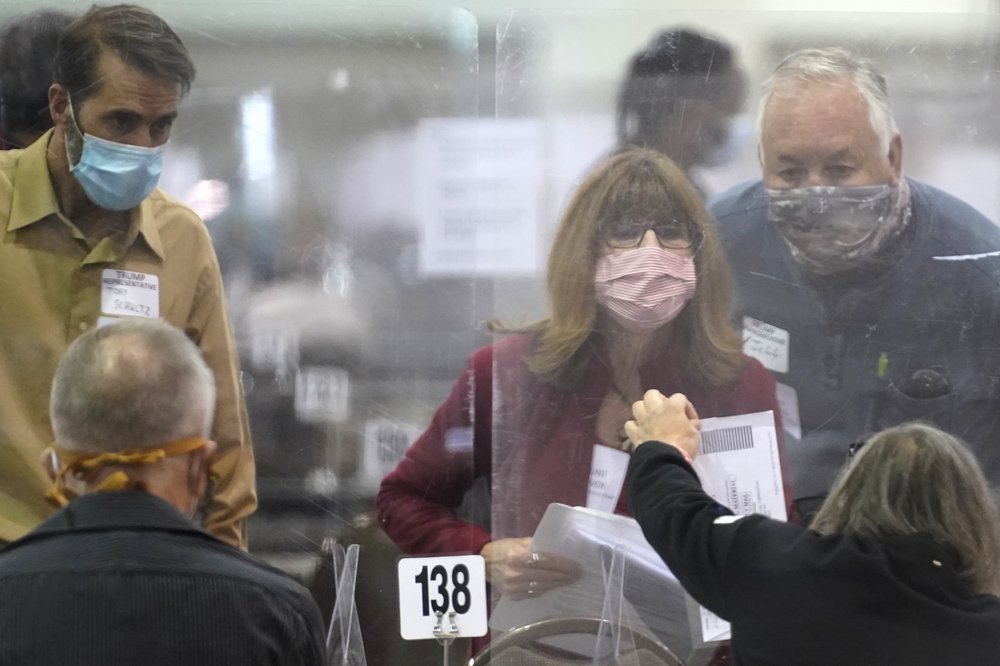Politics
Wisconsin GOP Senate leader opposes ‘blowing up’ elections

MADISON, Wis. (AP) — The Republican leader of the Wisconsin Senate said Wednesday that he opposes “blowing up” the bipartisan commission he helped create to run elections in the battleground state.
But Senate Majority Leader Devin LeMahieu did say that changes to the Wisconsin Elections Commission (WEC) were needed in response to a nonpartisan audit. That audit recommended 48 law and administrative changes, many of which the commission is working to enact.

Other Republicans have called for the six current elections commissioner to resign and for the Legislature to consider more aggressive changes to weaken or dissolve the commission and empower the Legislature.
Assembly Speaker Robin Vos has said the commissioners should “probably” be criminally charged.
LeMahieu, who was involved with creating the commission in 2015, dismantling the nonpartisan Government Accountability Board (GAB), when he served as chairman of the Senate elections committee, said he favored a more measured approach.
“We might be able to tweak it,” LeMahieu said in an interview.
“Yes, I’m frustrated with some of the things the commission has done over the last couple of years, but that doesn’t mean that blowing it up is the right thing to do unless you know what the alternative is.”
Republicans have called for change since President Joe Biden’s victory over Donald Trump by nearly 21,000 votes in Wisconsin, an outcome that’s withstood recounts and numerous lawsuits.
An Associated Press review of battleground states contested by Trump, including Wisconsin, found too few cases of fraud to affect the outcome.
Any changes the Republican-controlled Legislature wants to make to the commission this year would have to be signed by Democratic Gov. Tony Evers. He has already vetoed bills that would make it more difficult to vote absentee and has promised to reject attempts to change the current system, including giving the Legislature the power to run elections.
There’s also a push to transfer more power for running elections to the secretary of state, which hasn’t had those responsibilities in more than 40 years, and passing a constitutional amendment to make election law changes. An amendment would need approval from voters and could not be vetoed by the governor.
LeMahieu said the constitutional amendment was “an idea worth considering” and something that Republican senators would be discussing.
The amendment, supported by the conservative group Common Sense Wisconsin, would require elections to be run the same way across Wisconsin; early voting hours and days would be the same in every community, and some would have to change how they count absentee ballots. The measure is largely viewed as an attempt to force the state’s Democratic cities to restrict access.
Evers opposes the amendment and empowering the secretary of state to run elections. Evers is making his defense of the current election system a centerpiece of his reelection campaign, arguing his veto power is the only thing standing in the way of Republicans taking greater control of how elections are run.
Asked if he supported the Legislature taking over the running of elections, LeMahieu called it an “obscure question.”
He said the Legislature, by virtue of creating the elections commission, was overseeing elections, but he balked at taking a more direct role.
“We created the Election Commission and I don’t think I can go out there and check nomination signatures for different people,” LeMahieu said. “I think having election officials in places is important to running the process.”
He also said he opposed criminally charging members of the election commission, as the Trump-supporting Racine County sheriff has called for because of guidance they gave to nursing homes during the coronavirus pandemic in 2020.
“I’m not a district attorney, nor an attorney in any form, so I think that might be going a little too far to be charging them with a crime,” LeMahieu said.

